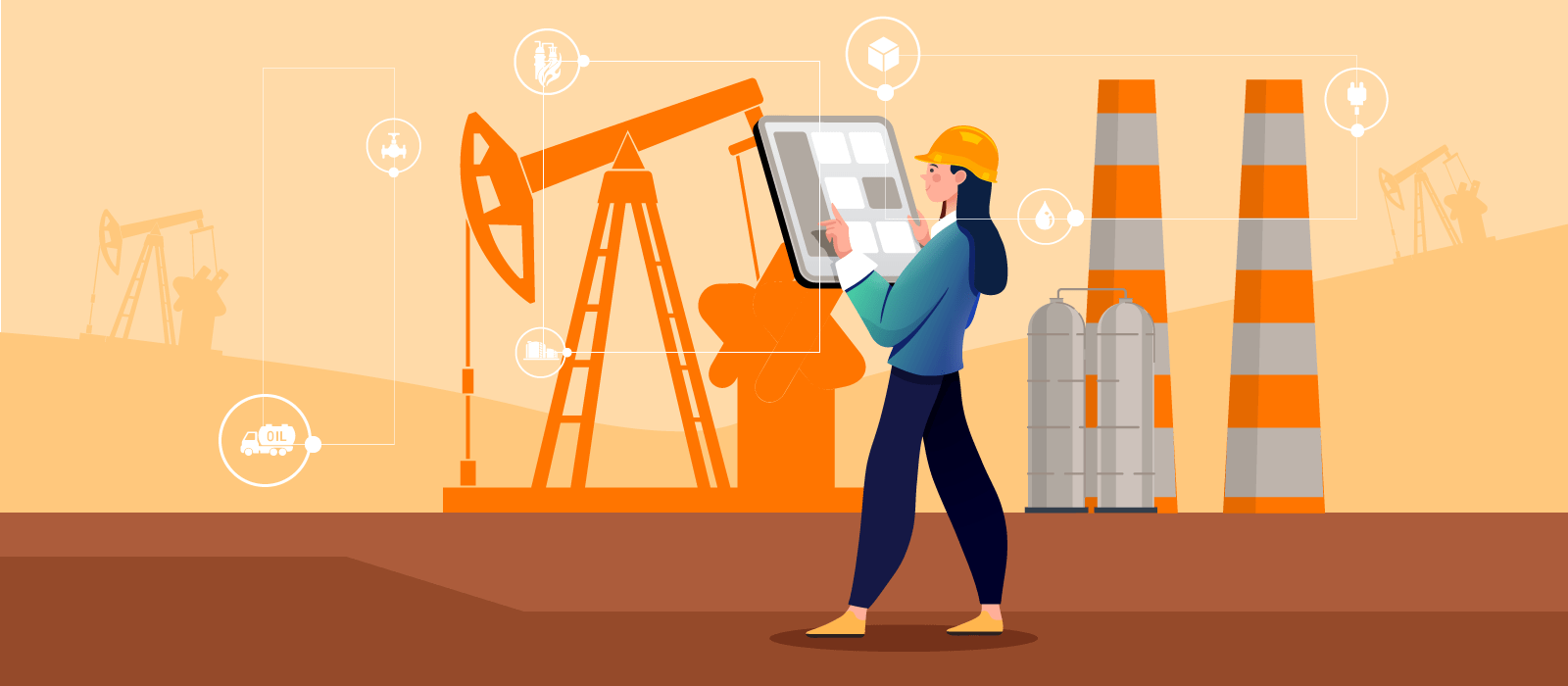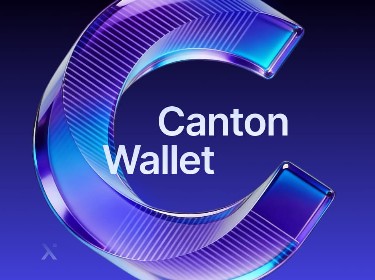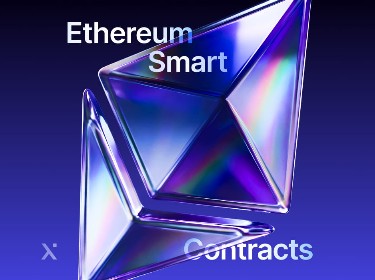Oil and Gas companies are now seeing the potential of blockchain technology to manage and track their resources more efficiently, as well as to optimize payment and reconciliation processes. For business owners, the promise of a birds-eye view over expansive oilfields and the many associated operations is highly attractive.
The oil and gas industry is a global leviathan, bringing together hundreds of shareholders, including major integrated oil companies, service providers, regulatory agencies, and government organizations. It’s a broad and diverse landscape where collaboration and open communication are the two main pillars.
Unfortunately, the industry now faces its most challenging times, against a backdrop of reduced consumer demand, scarce resources and funding, and the smallest margin for error due to harsh regulatory policies. Companies are on a constant lookout for less costly and more effective ways of locating, extracting, and refining hydrocarbons to produce oil and gas products.
Blockchain technology can play an integral role in tackling the industry’s data sharing, coordination, communication, and regulatory compliance issues. It offers transformative digital tools to improve operations and allows companies to avoid intermediaries when carrying out transactions. Building new blockchain platforms and integration with the existing ecosystem of networks such as Ethereum can ultimately lower expenses and costs across the board.
Continue reading to find out how exactly blockchain fits into the oil and gas sector and discover the exciting opportunities it creates.
The inner workings of Oil and Gas
The oil and gas industry encompasses thousands of companies spread across the globe. Based on the processes and the key actors involved, oil and gas production splits into upstream, midstream, and downstream categories. Essentially, these can be understood as milestones for the end product to reach the customer.
Upstream is the section of the industry that carries out resource exploration and extraction. The main activities here are searching for potential underground or underwater crude oil and natural gas fields, drilling exploratory wells, and bringing resources to the surface. It includes drilling contractors who own and operate drilling rigs, offshore oil/gas production facilities, oil service companies, and equipment manufacturers.
Midstream oil and gas companies are responsible for storing and transporting the extracted crude oil and natural gas resources. Pipelines, trucking and hauling, railroads, and other transport systems are used to move crude oil from production sites to refineries and then further down the supply chain. It involves pipeline transport companies, logistics and technology companies, transloading companies, and oil terminal operators.
Downstream is the segment where the resources are refined and produced into final products which are sold to end-users at gas stations and other points of sale. This covers refining crude oil into gasoline, diesel, natural gas liquids, and a variety of petrochemical products. Oil refineries, petroleum product distributors, petrochemical plants, natural gas distributors, and retail outlets are all companies involved in the downstream process.
Challenges that oil companies face
The oil and gas industry embraces technological advances when it comes to its mechanical operations. Over the past, it has made tremendous leaps forward by introducing hydraulic fracturing and 3-D seismic extraction methods. On the other hand, management and back-office processes like the supply chain and finances are still kept in the dark, being seen as potential areas for cutting down expenses.
As a result, there are unresolved lingering issues and challenges that in many ways hamper production:
- The industry continues to operate via outdated platforms with unreliable tools for trading resources and end products.
- Data management processes rely on manual entry, supervision, and are highly susceptible to security breaches and human error.
- Transactions entail exchanging and sharing disparate documents such as purchase invoices, shipping documents, and bank releases across a variety of databases.
- Companies are struggling to comply with global regulations and to ensure that safety requirements are being met by every participant in the supply chain.
What is blockchain and can it improve Oil and Gas?
Blockchain is a shared, immutable ledger that is stored on multiple nodes within a decentralized network. It is most often used for carrying out transactions and tracking assets throughout a business’ processes. Anything that holds value can be recorded, tracked, and traded on the blockchain network. Employing the best practices of cryptography, blockchain technology offers high security and transparency.
The key advantage of blockchain solutions is having special tools called smart contracts which support and automate the execution of various kinds of agreements between the parties involved. The agreement terms are hard-coded into the application. Smart contracts can substantially improve data management. They can also optimize communication, and speed up interactions between oil and gas companies.
Ultimately, blockchain technology can help companies to more effectively record, manage, and track data on the Oil & Gas supply chain and reinforce all the collaborative stages of production.
Try consulting for a clear view on whether blockchain is a viable option for your business case
Oil and Gas incidents: what can go wrong?
![]()
In September 2020, a Netherlands oil and gas company, Nederlandse Aardolie Maatschappij (NAM), was drowned in fines worth 125,000 euros by the state services. They were being accused of not taking adequate measures to prevent leakages of hazardous substances in 2019. One incident involved a cubic meter of desulphurization liquid which ended up in a ditch, while another saw spills of thirty cubic meters of natural gas condensate polluting a canal.
The prosecutor claimed NAM failed to act on the incident. Never mind the 125,000 euros, the company also had to pay for the damage and clean-up costs which added up to more than 1.3 million euros.
Severe regulation breaches were found during a recent investigation into an incident at Equinor’s methanol plant in Norway. In December 2020, a turbine breakdown in the compressor house resulted in a large lube oil leak that caused a fire on the plant’s premises. After an investigation into the incident, the company was deemed responsible and was ordered to bring their equipment into compliance with regulations.
Luckily, the breakdown and fire did not lead to any physical injuries among the employees. However, production was down for a whole 12 weeks at the Equinor methanol plant as a result of the incident.
Can blockchain prevent oil and gas incidents?
Blockchain-powered emergency management and prevention offers more efficient and cost-effective methods for dealing with these risks and minimizing casualties. Companies can make use of a decentralized network of IoT devices that trigger alerts and immediately notify corresponding personnel.
Blockchain can provide unified storage for compliance records and emergency mitigation efforts. Regulations can be enforced at every step in the technological process. Immutable proof reports keep the company in the loop and let it track how safety measures are being applied. Seeing when an emergency alert came in and how quickly the team responded also allows to improve fail-proof techniques and prevent future incidents.
Ultimately, blockchain emergency control applications in the oil and gas industry can save you costs on fines, help avoid legal disputes, minimize expenses on damage repair and clean-up activities, and also improve your company’s environmental footprint.
How blockchain aids upstream Oil and Gas
![]()
The exploration and production of hydrocarbons involve drilling wells that are spread across long distances, in locations with different jurisdictions, some of which are in geopolitically unstable regions, or even offshore sites. Although wells are generally owned by integrated oil companies such as Shell or ExxonMobil, there might be dozens of parties involved in extracting oil and natural gas from each of these sites.
The companies that carry out upstream Oil and Gas processes operate under different contract requirements, each following its own performance metrics, and produce different deliverables. It’s a complex process every step of the way: from management to negotiating agreements and payment processing, to approving performance results and sending products further down the supply chain.
Introducing a single tool like blockchain that unifies all these elements significantly reduces the inefficiencies and needless costs that eat away revenue. Let’s take a closer look at what exactly blockchain has to offer for upstream Oil and Gas.
Improving field operations and resource optimization
A blockchain system can be used to collect vital information across the whole field of upstream Oil and Gas operations and share it between the actors involved. It can significantly simplify and accelerate exploration and production activities.
During the exploration process, workers can record data about the state of wellbores and update it in real-time. Well operators can document the work that was performed, the measurements that were taken, and the state of the equipment. This creates the opportunity for across-the-board monitoring by senior management staff.
The discovery of promising drilling locations and the necessary data is promptly shared between all parties involved so production operations can commence momentarily.
Production involves trucking and hauling materials such as water, condensates, sand, crude, fracking equipment, and supplies. Integrated with IoT systems, blockchain apps can aggregate data collected from devices such as pressure sensors, flow meters, and tank gauges.
This data is stored in an accessible format and presented via web and mobile app interfaces to well operators and management personnel. As with monitoring the state of wells, this opens the door to tracking the location, amount, and disbursement of resources.
Creating digital identity vaults to easily access information
Many of the issues in upstream Oil and Gas stem from the fact that actors can’t effectively coordinate data. It is often randomly gathered and stored in multiple systems. Blockchain solutions can introduce a federated identity construct where each entity in the field of operations can have its own data vault. This means all data related to a certain entity is stored in one place and can be easily accessed through a single convenient interface.
These federated digital identity constructs can be built into a hierarchy and interconnected so that related information from different entities can be easily fetched and supplemented. For example, all information on a worker could be stored in a dedicated profile containing their certifications, specialties, currently assigned jobs, performance history, and so on.
The currently assigned job could link to the profile of the well and its parameters, including the resources attributed, maintenance records, equipment history, and performance records. This creates an interconnected, interactive knowledge base shared across the whole field of operations.
Orchestrating seamless collaboration through smart contracts
Major integrated oil and gas companies often find it difficult to manage short and long-term goals for the large number of different service companies involved in exploration and production. The processes involve a chain of operations that needs to be performed simultaneously to reach the final goal of resource extraction. Blockchain’s smart contracts can automate the verification and approval of intermediate tasks and speed up shifting gears in upstream Oil and Gas.
Smart contract development services add a layer of cutting-edge technology to traditional performance-based contracts. When a task is completed, the service provider may stake a part of their compensation to affirm that they’ve fulfilled the contract and to ensure the quality of work performed. If the next party involved in the operations verifies the completed task, the stake is returned to the service provider. Otherwise, the stake serves as a penalty for substandard performance.
A system like that would increase accountability and limit the number of undesirable incidents during oil and gas production. At the same time, oilfield service companies can receive payments as soon as they’ve finished their job on the site, without having to wait for lengthy approval processes. This will further stimulate lively collaboration and reanimate upstream operations.
See our case study of a water hauling solution that provides convenient tools for operators and truckers
How blockchain aids midstream oil and gas
![]()
Storing and transporting hydrocarbon resources, managing expansive transportation networks, and paying dues to global regulations is what midstream oil and gas is all about. Resources are delivered from oil rigs to refineries through an interconnected network of routes via barges, tankers, trucks, railroads, and pipelines.
Tracking crude oil’s path along the supply chain, as well as monitoring the conditions during storage, is crucial for companies to attain the highest quality of petroleum products.
Transportation through state, regional, and municipal borders means dealing with a large bundle of regulatory issues. State regulations govern the operation of oil pipelines that move gas from wells to operating facilities, as well as the gas gathering lines. Federal law regulates the operation of natural gas pipelines that provide long-distance transmission and local customer distribution.
Navigating approval and shipping documentation without a uniform digital infrastructure is quite a daunting task. A blockchain solution can connect the dots and integrate the silos into a wholesome ecosystem. Let’s dive into the midstream oil and gas world powered by blockchain and explore its benefits.
Efficient storage monitoring and equipment maintenance
Some of the reservoirs, tanks, and supporting mechanisms are legacy assets, but they still serve their purpose. Others are modern but prone to malfunction and require close monitoring. It’s a disparate and vast field of operations that requires each team to have a certain skill set and expertise. A blockchain system could help manage this complex organism by providing real-time and easily accessible status data.
Personnel can easily keep track of the state of equipment using web apps connected to a decentralized network, while every maintenance event will be stored and shared as history. Receiving data from IoT sensors and recording it on blockchain makes it available to everyone, including the senior staff.
Companies will have the opportunity to oversee equipment performance and adjust their procedures to maximize it without elevating the risk of failures and unfortunate incidents.
Multi-channel transportation management and resource tracking
Most frequently, oil and gas products are being transported through huge networks of interstate pipelines. Trucking, cargo ships, and railroads also come into action. In essence, it is a decentralized network that requires a decentralized approach. Blockchain management systems are capable of protecting proprietary information while at the same time sharing data between different organizations.
This is achieved through a combination of public and private blockchain architectures, where shareholders are in control of who accesses their information. With a shared blockchain database and access controls, midstream-specific and large integrated oil companies can obtain a higher level of visibility into the location and production status of their assets.
At the same time, smart contracts can be used to automate transactions and accelerate interactions between actors on the supply chain. Hydrocarbons can be quickly dispatched from extraction points and accepted at refineries, with every intermediary properly compensated and every exchange of product verified. Blockchain apps offer complete transparency for midstream operations.
Simplified regulatory compliance record management
Sharing certificates, attestations, and reports on a blockchain can alleviate most of the struggles of achieving compliance. Pipelines must undergo regular inspections and run through a series of tests to receive appropriate certification. The process involves multiple subcontractors performing examinations on thousands-of-miles long stretches of pipeline and communicating via maintenance documentation.
A shared decentralized network could provide universal access to compliance documentation for oil and gas companies, regulatory agencies, examination crews, and everyone else involved in the process. A request to receive a permit could be sent directly to the regulatory board and officials who will be able to review it in real-time, without any delays.
Combined with blockchain digital identity, each pipeline, means of transportation, or piece of equipment could have a compliance record in its profile. An inspection document or compliance report would have the digital signature of the party that compiled the document. If any issues occur, the parties involved could easily communicate to resolve the problem, or further investigate the details by following the history trail on the blockchain network.
How blockchain aids downstream oil and gas
![]()
The variety of products derived from crude oil and natural gas such as gasoline, jet fuel, health & beauty products, medical supplies, and electronics rely on specialized production, logistics, and marketing processes. Downstream Oil and Gas operates through extremely fragmented distribution networks which adds to the complexity of this segment. It is also a consumer-facing business, strongly influenced by global and local economic trends.
A blockchain-powered supply chain optimizes production and enables multi-channel coordination which interconnects the diversified business domains that use hydrocarbons to create their goods. Blockchain technology also opens up new avenues for trading oil and gas products and assuring consumers of their high quality.
Let’s explore some of the unique opportunities blockchain creates for downstream Oil & Gas.
Multi-domain supply chain management
A bulk of refined crude oil can potentially fuel a wide range of different products, going through several production stages, all spread out across multiple destinations. Proper tracking and efficient management are therefore essential to reach the highest quality of the produced commodities.
Blockchain will enable integrated oil companies to have a wide-angle view of how their crude resources are refined and consumed through end-products. Businesses can see a complete profile of their resources containing data on their provenance, quality assessment, compliance certifications, refinement grade, production status, and transportation details. A distributed database can also provide information on changes in the market such as price and demand across different locations.
These insights introduce a much more efficient distribution management system, where all factors are taken into account: from balancing the time taken on production to choosing the optimal shipping routes, to prioritizing resources based on the demand in quality, to weighing market conditions and optimizing strategies.
Streamlined payments and diversification of sales
Blockchain could allow oil companies to easily complete transactions throughout the entire energy supply chain. Using Bitcoin or another cryptocurrency excludes banks and brokers from the picture. Accelerating high-volume sales of oil and gas products and eliminating intermediary costs significantly boosts the earnings of both integrated oil companies and independent businesses.
Smart contracts can introduce an additional layer of value by including timing and quality as factors in Oil & Gas deals. Compensations could be made based on the acceptance criteria programmed into agreements. This would potentially increase the overall performance within the industry.
What’s more, introducing cryptocurrencies or tokens pegged against oil and gas products could create new revenue streams. Tokenization has already benefited a variety of industries, creating innovative financial instruments and replacing traditional payment methods. Not only could this bring in more sales, but it could also attract new investors.
Real cases of oil and gas companies using blockchain
The major oil companies including Chevron, ConocoPhillips, Equinor, ExxonMobil, Hess, Marathon, Noble Energy, Pioneer Natural Resources, Repsol, and Shell are already part of the “Blockchain for Energy” consortium exploring the technology’s industrial applications. The consortium aims to discover new ways blockchain can accelerate transactions, improve security, and lower costs for oil and gas operations.
Recently, the consortium announced a successful pilot project pioneering the use of blockchain technology in water haulage. The project used the GumboNet blockchain platform to automate processes from field reading to invoice payment. It was implemented by the Nuverra Environmental Solutions water logistics and transportation company on five wells in North Dakota, US.
The project featured automated volume validation and payments to vendors with a promise to reduce costs, increase efficiency, and provide transparency. The success of the project was revealed in the figures:
- The process workflow was cut from 16 to 7 stages, with the minimum necessary manual intervention, at the same time reducing timescales from 90-120 days to 1-7 days.
- 85% of all water volume measurements are automatically validated against data provided through blockchain by multiple parties involved in the process
- There was a 25% – 35% reallocation of resources as a result of automated invoices and reduced financial risks.
Another promising blockchain oil platform project called VAKT has already united such industry giants as BP, Shell, Equinor, Gunvor, and Mercuria. The platform digitizes post-trade document management and eliminates redundant paperwork processes.
It covers everything from details of the trade to confirmation, contract issuing, logistics, and even invoicing. The VAKT project provides complete deal lifecycle management from the moment the deal is signed to the final settlement. It also integrates with third-party services to provide letter of credit options.
The Abu Dhabi National Oil Company partnered with IBM and used its Hyperledger enterprise blockchain technology to create an internal network to optimize financial processes between the group companies. They were able to completely exclude manual accounting and transfer these processes to the blockchain’s distributed ledger.
The transparency provided by the network allows for the distribution of resources and products from the refineries in a matter of weeks, instead of several months as it were with traditional methods.
Conclusion
Blockchain technology will allow oil companies to increase efficiency, optimize costs, and provide much better control over their data and field operations. Partnering with an oil and gas software development company can ensure the seamless integration of these technologies, customized to address specific industry needs. The upstream segment will benefit from improved multi-channel collaboration and resource management. Midstream companies will be able to easily manage vast transportation networks and track products from wells to pipelines to refineries. It will also help with regulation compliance and quality control.
Sharing information among all the stakeholders will create an interconnected ecosystem with transparent processes which will make extraction, storage, and transportation more efficient.
Ultimately, downstream, when the product meets the consumer, companies will have a lot more tools to manage quality, provide diversified services, and maximize revenues with reduced expenses and accelerated payments. Blockchain solutions have the potential to shake up the industry and improve performance from the production stage all the way through to distribution and sales.
Definitely don’t want to fall behind and look to embrace these innovations? Having an experienced blockchain development partner in your corner will help alleviate the struggles of integrating new technologies into an already complex environment that is oil and gas production.




